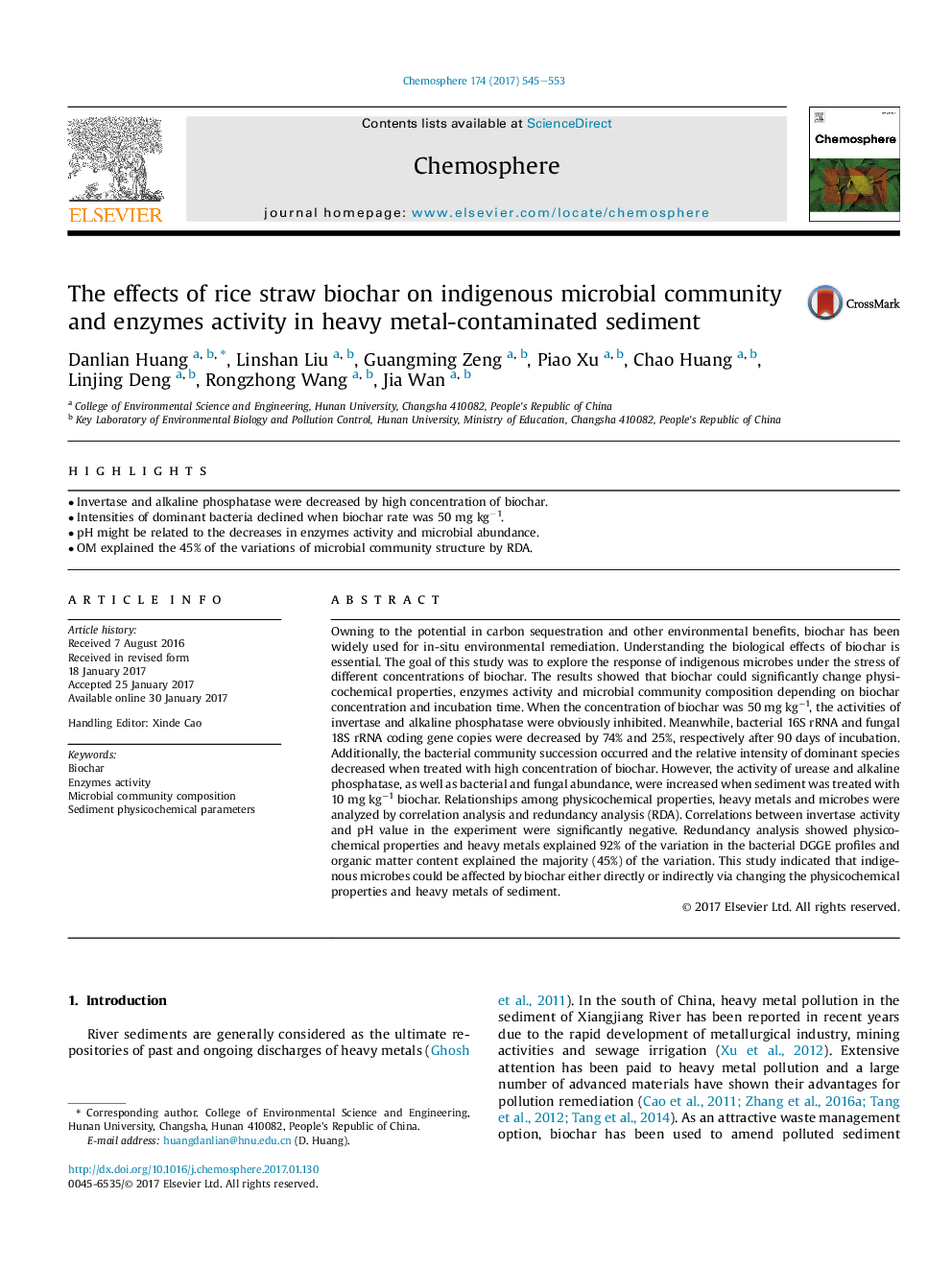| Article ID | Journal | Published Year | Pages | File Type |
|---|---|---|---|---|
| 5747332 | Chemosphere | 2017 | 9 Pages |
â¢Invertase and alkaline phosphatase were decreased by high concentration of biochar.â¢Intensities of dominant bacteria declined when biochar rate was 50 mg kgâ1.â¢pH might be related to the decreases in enzymes activity and microbial abundance.â¢OM explained the 45% of the variations of microbial community structure by RDA.
Owning to the potential in carbon sequestration and other environmental benefits, biochar has been widely used for in-situ environmental remediation. Understanding the biological effects of biochar is essential. The goal of this study was to explore the response of indigenous microbes under the stress of different concentrations of biochar. The results showed that biochar could significantly change physicochemical properties, enzymes activity and microbial community composition depending on biochar concentration and incubation time. When the concentration of biochar was 50 mg kgâ1, the activities of invertase and alkaline phosphatase were obviously inhibited. Meanwhile, bacterial 16S rRNA and fungal 18S rRNA coding gene copies were decreased by 74% and 25%, respectively after 90 days of incubation. Additionally, the bacterial community succession occurred and the relative intensity of dominant species decreased when treated with high concentration of biochar. However, the activity of urease and alkaline phosphatase, as well as bacterial and fungal abundance, were increased when sediment was treated with 10 mg kgâ1 biochar. Relationships among physicochemical properties, heavy metals and microbes were analyzed by correlation analysis and redundancy analysis (RDA). Correlations between invertase activity and pH value in the experiment were significantly negative. Redundancy analysis showed physicochemical properties and heavy metals explained 92% of the variation in the bacterial DGGE profiles and organic matter content explained the majority (45%) of the variation. This study indicated that indigenous microbes could be affected by biochar either directly or indirectly via changing the physicochemical properties and heavy metals of sediment.
